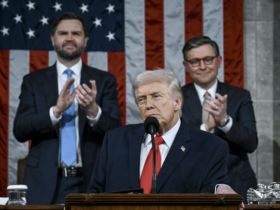KUALA LUMPUR, July 30 – The International Monetary Fund (IMF) has raised its forecast for Malaysia’s real gross domestic product (GDP) growth to 4.5 per cent in 2025 and 4.0 per cent in 2026.
In its July 2025 World Economic Outlook (WEO) update released Tuesday, titled ‘Global Economy: Tenuous Resilience amid Persistent Uncertainty’, the IMF said the forecast for 2025 is 0.4 percentage point higher than in the reference forecast of the April 2025 WEO and 0.2 percentage point higher for 2026.
Meanwhile, the IMF said that in the emerging market and developing economies, growth is expected to be 4.1 per cent in 2025 and 4.0 per cent in 2026.
“Relative to the forecast in April, growth in 2025 for China is revised upward by 0.8 percentage point to 4.8 per cent. This revision reflects stronger-than-expected activity in the first half of 2025 and the significant reduction in US-China tariffs,” it said.
Additionally, it said China’s growth in 2026 is also revised upward by 0.2 percentage point to 4.2 per cent, again reflecting the lower effective tariff rates.
“In India, growth is projected to be 6.4 per cent in 2025 and 2026, with both numbers revised slightly upward, reflecting a more benign external environment than assumed in the April reference forecast,” it said.
The IMF highlighted that despite global uncertainties, countries should reduce policy-induced uncertainty by promoting clear and transparent trade frameworks.
“Pragmatic cooperation is paramount in instances in which some rules of the international trading system, in their current form, may not be functioning as intended.
“This entails the pursuit of multilateral initiatives on the global commons and modernising trade rules where feasible, while seeking plurilateral or regional solutions on other matters,” it said.
Moreover, the IMF said bilateral negotiations can help defuse trade tensions and should aim to reduce trade and investment barriers while not increasing them toward third parties, which could escalate tensions with other trading partners.
“Such negotiations should be pursued with the ultimate aim of addressing the root causes of tensions: specifically, excess external imbalances arising from internal policy choices. This would involve identifying and taking steps to resolve the underlying distortions for a more durable solution.
“Broad subsidies and industrial policies aiming to protect exports can be costly and distortive,” it said.
The IMF said central banks must carefully calibrate monetary policies to country-specific circumstances to maintain price and financial stability amid prolonged trade tensions and evolving tariffs.
“In countries imposing tariffs on trading partners — either by initiating or by retaliating — these actions constitute supply shocks.
“Hence, central banks in these countries face a difficult trade-off between shielding the real sector and preventing the expected one-off increase in prices from turning into persistently higher inflation. The trade-off becomes more pertinent if inflation is already above target,” it said.
According to the report, further easing of monetary policy should then depend on having convincing evidence that inflation and inflation expectations are heading decisively back to target.
“Countries that have not imposed tariffs, by contrast, face a demand shock. Central banks could, in this case, gradually reduce the policy rate,” it said.





















Leave a Reply